La Badil est un film de genre Documentaire réalisé par Dominic Brown
La Badil (2012)

Si vous aimez ce film, faites-le savoir !
La Badil (No Other Choice) is an undercover documentary film produced and directed by British filmmaker Dominic Brown, about the struggle of the indigenous Sahrawi people of Western Sahara.
Commentaires
Postez un commentaire :
Suggestions de films similaires à La Badil
Il y a 1 films avec le même réalisateur, 8965 ayant les mêmes genres cinématographiques, 10900 films qui ont les mêmes thèmes (dont 106 films qui ont les mêmes 5 thèmes que La Badil), pour avoir au final 70 suggestions de films similaires.Si vous avez aimé La Badil, vous aimerez sûrement les films similaires suivants :
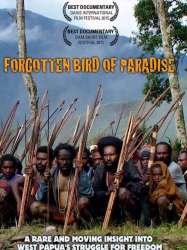
Forgotten Bird of Paradise (2009)
, 27minutesRéalisé par Dominic Brown
Origine Royaume-uni
Genres Documentaire
Thèmes Documentaire sur le droit, Documentaire sur une personnalité
Note78%





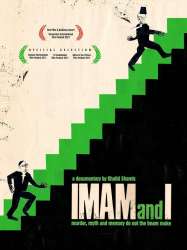
The Killing of the Imam (2010)
, 10minutesOrigine Afrique du sud
Genres Documentaire
Thèmes Afrique post-coloniale, Le racisme, Documentaire sur la discrimination, Documentaire sur le droit, Documentaire sur une personnalité, Documentaire sur la politique, Politique
En 1969, l’imam Abdullah Haron fut enfermé et tué en détention au Cap. Leader de communauté, très apprécié, il tentait de faire prendre conscience à ses congénères, peu actifs, de la détresse dans laquelle ils vivaient sous l’apartheid. Durant les années 1960, l’imam Haron est devenu plus actif et a commencé à voyager à l’étranger pour soulever des fonds destinés aux familles pauvres. Mélangeant animation, interviews et archives, ce court-métrage explore les dernières années de la vie de l’imam et sa mort. Le récit est dit par son petit-fils, le réalisateur, à travers les yeux d’un enfant.

Occupation 101 (2006)
, 1h30Origine Etats-Unis
Genres Documentaire
Thèmes Afrique post-coloniale, Politique, Religion, Documentaire sur le droit, Documentaire sur la guerre, Documentaire historique, Documentaire sur une personnalité, Documentaire sur la politique, Documentaire sur la religion, Politique, Religion juive
Note80%






...More Than 1000 Words (2006)
, 1h18Origine Israel
Genres Documentaire
Thèmes Afrique post-coloniale, Religion, Documentaire sur l'art, Documentaire sur le droit, Documentaire sur la guerre, Documentaire historique, Documentaire sur une personnalité, Documentaire sur la politique, Documentaire sur la religion, Politique, Religion juive
Acteurs Galit Gutmann
Note74%





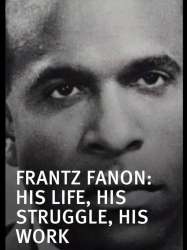 , 52minutes
, 52minutesOrigine Algerie
Genres Documentaire
Thèmes Afrique post-coloniale, Film sur un écrivain, Documentaire sur le droit, Documentaire historique, Documentaire sur une personnalité, Documentaire sur la politique, Politique
Ce film décrit la vie de Frantz Fanon, un psychiatre de Martinique devenu porte-parole de la lutte anti-colonialiste. En 1952, Frantz Fanon écrit Peau noire, masques blancs, une analyse du racisme et des manières qu'ont ses victimes de l'intérioriser. Dans les années 1950, il aide les rebelles lors de la guerre d'Algérie. Expulsé d'Algérie en 1956, il migre vers Tunis, où il écrit pour le journal rebelle algérien El Moudjahid, fonde l'une des premières cliniques psychiatriques d'Afrique et écrit plusieurs ouvrages sur la décolonisation. Il décède d'une leucémie à Washington D.C. à l'âge de 36 ans.
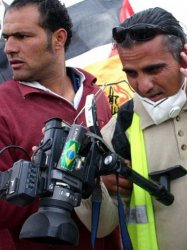
5 Caméras Brisées (2011)
, 1h34Origine Israel
Genres Drame, Guerre, Documentaire, Policier
Thèmes Afrique post-coloniale, Film traitant du cinéma, Religion, Documentaire sur le monde des affaires, Documentaire sur le cinéma, Documentaire sur le droit, Documentaire sur la guerre, Documentaire historique, Documentaire sur une personnalité, Documentaire sur la politique, Documentaire sur la religion, Politique, Religion juive, Documentaire sur les films
Note78%





Lorsque son quatrième fils naît en 2005, Emad Burnat, un cameraman palestinien autodidacte, achète sa première caméra. Au même moment, dans son village de Bil'in, une barrière de séparation est construite et les villageois commencent à résister.

The Making of a Martyr (2006)
Origine Canada
Genres Documentaire
Thèmes Afrique post-coloniale, Religion, Le terrorisme, Documentaire sur le droit, Documentaire sur la guerre, Documentaire historique, Documentaire sur une personnalité, Documentaire sur la politique, Documentaire sur la religion, Documentaire sur le terrorisme, Politique, Religion juive, Religion musulmane
Note69%






Invisible Children (2006)
, 55minutesRéalisé par Jason Russell
Origine Etats-Unis
Genres Documentaire
Thèmes Afrique post-coloniale, L'enfance, Documentaire sur le droit, Documentaire sur la guerre, Documentaire historique, Documentaire sur une personnalité, Documentaire sur la politique, Documentaire sur la maltraitance des enfants, Politique, Maltraitance des enfants
Acteurs Jason Russell
Note77%





In the spring of 2003, Jason Russell, Bobby Bailey, and Laren Poole traveled to Africa to document the War in Darfur. Instead, they changed their focus to the conflict in northern Uganda, Africa's second longest-running conflict after the Eritrean War of Independence. The documentary depicts the abduction of children who are used as child soldiers by Joseph Kony and his Lord's Resistance Army (LRA). This film centers around a group of Ugandan children who walk miles every night to places of refuge in order to avoid abduction by the LRA.
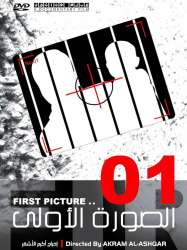
الصورة الاولي (2007)
, 27minutesGenres Documentaire
Thèmes Afrique post-coloniale, Religion, Documentaire sur le droit, Documentaire sur la guerre, Documentaire historique, Documentaire sur une personnalité, Documentaire sur la politique, Documentaire sur la religion, Politique, Religion juive
Note75%






海と夕陽と彼女の涙 ストロベリーフィールズ (2006)
, 1hOrigine Israel
Genres Drame, Documentaire, Fantasy
Thèmes Afrique post-coloniale, L'environnement, Religion, Documentaire sur le monde des affaires, Documentaire sur le droit, Documentaire sur l'environnement, Documentaire sur la guerre, Documentaire historique, Documentaire sur une personnalité, Documentaire sur la politique, Documentaire sur la religion, Politique, Religion juive
Acteurs Mitsuki Tanimura, Yuria Haga
Strawberry Fields points out that strawberries grown in Gaza are the only agricultural product marketed internationally as being of Palestinian origin. One of the major Gaza strawberry farms in located at Beit Lahiya. More than 1,500 tons of strawberries are exported from Gaza to Europe through the Israeli company Agrexco. In order to get overseas, however, the fruits need to pass through the checkpoint that separates Israel and Gaza. The 2005–2006 growing season coincided with the Israel's disengagement from Gaza and the rise of Hamas as the ruling political entity. The armed conflict between Israel and Hamas resulted in the closing of the border checkpoint. The strawberries grown at Beit Lahiya cannot leave Gaza, resulting in significant losses for the farmers and their Agrexco partners. Unable to transport their produce, the farmers have no choice but to dispose of their crop and prepare for the following year’s growing season.
 Connexion
Connexion